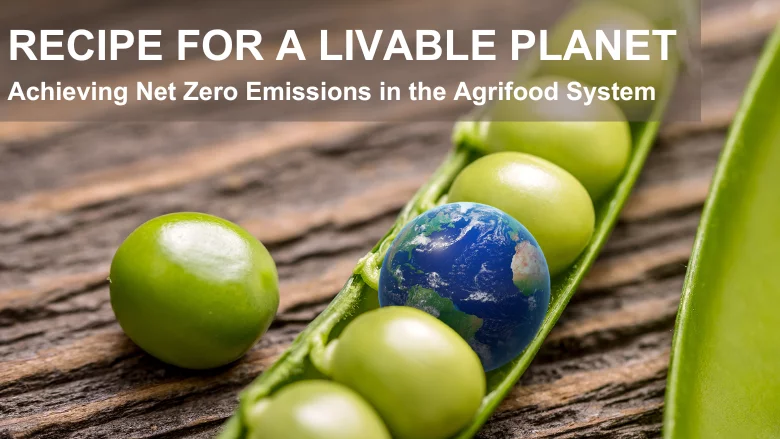New World Bank Report: Slashing Food Emissions by a Third is Achievable
A new World Bank report titled “Recipe for a Livable Planet: Achieving Net Zero Emissions in the Agrifood System” offers promising news, highlighting the potential of the global food system to significantly reduce greenhouse gas emissions. By adopting readily available practices, this sector can contribute nearly a third towards cutting global emissions.
The report goes beyond just identifying the problem. It proposes a “menu of solutions” tailored to different countries’ needs. High-income countries can play a leading role by supporting low- and middle-income countries in adopting sustainable farming practices. This includes technical assistance and shifting subsidies away from high-emitting food sources.
Middle-income countries have a significant role to play as well. By implementing practices like reducing emissions from livestock and rice production, investing in healthy soils, and minimizing food waste, they can achieve substantial emission reductions.
Low-income countries have the opportunity to learn from past mistakes and chart a different course. By embracing climate-smart practices for a greener and more competitive economy, they can achieve sustainable development. Preserving forests is a crucial aspect for them, as a large portion of their emissions come from deforestation for agriculture.
The report emphasizes that achieving net-zero emissions requires a comprehensive approach across all countries. This means tackling emissions throughout the entire food chain, from fertilizers and energy use in production to packaging and distribution.
The good news is that the financial benefits of reducing agrifood emissions outweigh the costs. While annual investments need to increase, the potential financial gains are significant. These benefits include improved human health, increased food security, better job opportunities for farmers, and environmental gains like carbon sequestration in forests and soils.
The World Bank report presents a clear message: significant progress towards reducing climate change can be achieved by transforming our food systems. By working together and adopting the proposed solutions, we can ensure a more sustainable future for our planet and its people.



